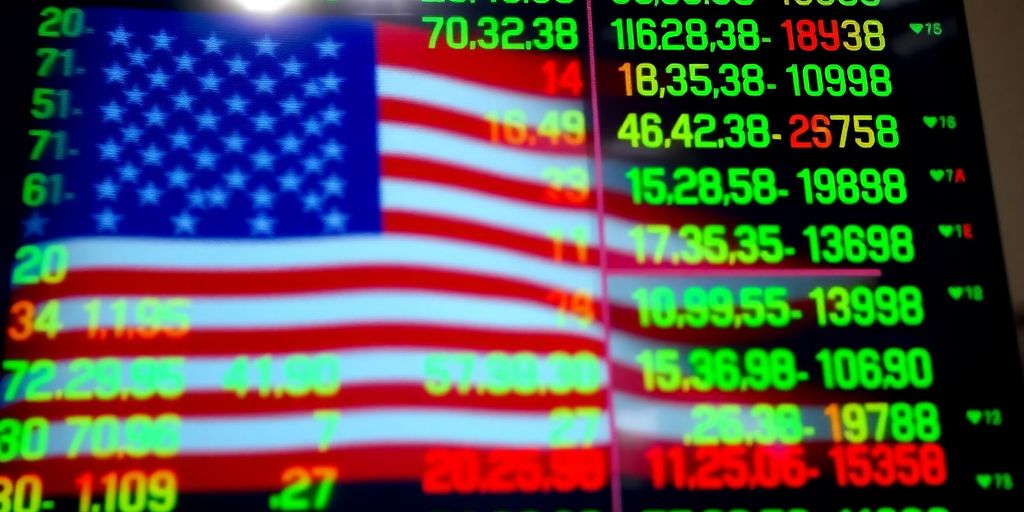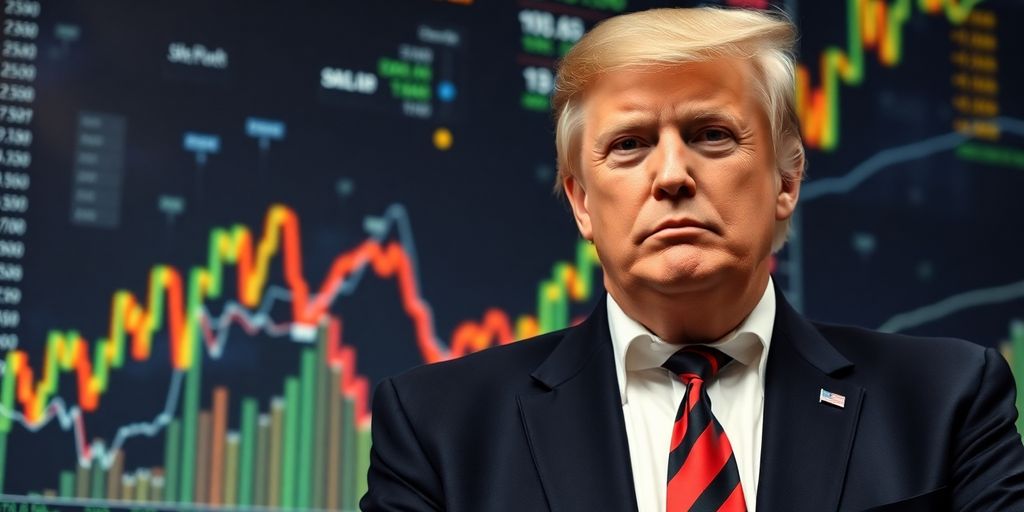Wall Street Navigates Mounting Uncertainties, Ends Mixed
U.S. stock markets experienced a mixed trading session, with major indexes closing with varied results as investors grappled with a confluence of economic fears and geopolitical uncertainties. The market sentiment was influenced by tariff threats, inflation concerns, and a cautious outlook on economic growth, leading to a volatile trading environment.
Key Takeaways
- Mixed Market Performance: The Dow Jones Industrial Average, S&P 500, and Nasdaq Composite closed with divergent performances, reflecting investor caution.
- Tariff Threats Loom: Escalating tariff disputes, particularly those initiated by the U.S., continued to cast a shadow over global economic stability and investor confidence.
- Inflation and Economic Fears: Sticky inflation data and concerns about a potential economic slowdown or recession influenced trading decisions, prompting a move towards safer assets.
- Sector Rotation: While some sectors experienced declines, others showed resilience, indicating a shifting investment landscape amid the prevailing uncertainties.
- Earnings Season Impact: Corporate earnings reports, particularly from key technology and growth companies, played a significant role in shaping market movements and investor sentiment.
Economic Headwinds and Investor Sentiment
Investors remained on edge throughout the trading session, with concerns about inflation and the potential for an economic slowdown weighing heavily on market sentiment. Recent economic data, including job openings and inflation readings, provided a mixed picture, leaving market participants to parse the implications for future monetary policy. The specter of recession, fueled by trade tensions and a cooling economy, contributed to a cautious trading environment.
Impact of Tariffs and Geopolitical Tensions
Tariff decisions, notably those from the U.S. administration, continued to be a significant driver of market volatility. Threats of broader levies and retaliatory measures created uncertainty for global trade and economic growth, prompting investors to seek refuge in safer assets like gold. The geopolitical landscape, including ongoing conflicts and political uncertainties in Europe, further amplified these concerns, leading to a risk-off sentiment in broader markets.
Sector Performance and Earnings
The market saw a degree of sector rotation as investors adjusted their portfolios in response to the prevailing economic climate. While technology and growth stocks, which had previously led the market rally, experienced some pullbacks, other sectors showed pockets of strength. Earnings reports from major companies, particularly in the technology sector, provided crucial insights into corporate performance and future outlooks, influencing stock prices and overall market direction.
Looking Ahead
As the market navigates these complex dynamics, investors will be closely monitoring upcoming economic data releases, corporate earnings, and geopolitical developments. The ongoing tension between inflation concerns, economic growth prospects, and monetary policy decisions will likely continue to shape market sentiment in the near term.
Sources
- Stocks fall, adding to biggest selloff in months on economic fears, Reuters.
- S&P 500 ends lower, European stocks wrap up biggest weekly loss of the year, Reuters.
- Wall Street ends sharply lower as anxiety rises, earnings heat up, Reuters.
- (OFFICIAL) QUOTES U.S. stocks tumble as September starts, investors cool on chips, Reuters.
- Stocks lose ground amid inflation concerns, trade war worries, Reuters.







































































































